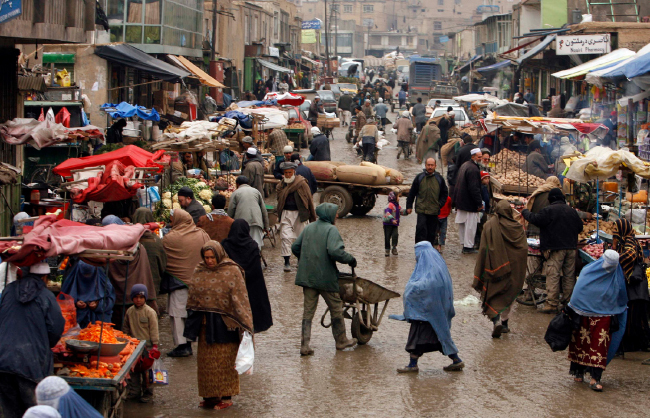Basically, Afghanistan was established in 1747 through tribal confederation. The form of state was sultanate and all tribes could not convene in the session when Ahmad Shah Abdali was appointed as a first king. The legitimacy of state, which rooted in tribalism and ethnic superiority, was under question. The constitutional state (1343 – 1352 in Afghan calendar) was also colored with ethnicity and tribalism. The attitude of nation’s representatives reflected the fact that they deemed themselves the representatives of certain ethnic group rather than the nation. This mindset still rules in many parts of the government and MPs represent a certain ethnic group.
Islam is considered one of the significant sources of legitimacy around Islamic states. Kings in Islamic societies operated under the aegis of caliph and sultan. Afghanistan also suffered from the same issue as kings gained legitimacy under the terms of emir and proclaimed to defend the society against non-Muslims.
With the wave of reformation during Amanullah Khan’s regime, the source of legitimacy switched from Islam to nationality. During Amanullah’s kingdom, the written constitution was approved for the first time in Afghanistan and all Afghan people were deemed citizens without any racial or religious discrimination. In short, the legitimacy of state rooted in ethnicity or Islam throughout the Afghanistan’s history.
Based on first article of current constitution, “Afghanistan shall be an Islamic Republic, independent, unitary and indivisible state.” Unlike monarchy, republic is government by elected representatives and led by president for a limited time rather than being ruled by a king or queen or being inherited. Public will play a key role in both republic and democracy and people participate actively in political power.
According to Thomas Hobbes since man in the “state of nature... has no idea of goodness he must be naturally wicked; that he is vicious because he does not know virtue”. On the contrary, Rousseau holds that “uncorrupted morals” prevail in the “state of nature”. Hence, all men submit some of their rights to an institution in return for having order and security, and being provided public services, etc. and this institution is called state. This is an unwritten contract between state and nation which is called “social contract”. According to Rousseau, by joining together into civil society through the social contract and abandoning their claims of natural right, individuals can both preserve themselves and remain free. This is because submission to the authority of the general will of the people as a whole guarantees individuals against being subordinated to the wills of others and also ensures that they obey themselves because they are, collectively, the authors of the law.
In a democratic and civil societies, there are many necessary elements such as freedom, equality, political pluralism, etc. Freedom is a highly significant element of democracy which is paid especial attention in Afghanistan’s current Constitution. For instance, article 24 states, “Liberty is the natural right of human beings. This right has no limits unless affecting others freedoms as well as the public interest, which shall be regulated by law. Liberty and human dignity are inviolable. The state shall respect and protect liberty as well as human dignity.” So, freedom is recognized as inherent and inviolable rights of mankind and will be respected and protected by the government. Freedom of thought, expression, correspondence, etc. are mentioned in the constitution.
Equality and lack of discrimination are also one of the elements in democracy. People are not supposed to be discriminated on the grounds of their race, sex, color, etc. People are equal and have equal suffrage and “equal rights and duties before law”.
Political pluralism such as the existence of civil society and other institutions to monitor the government’s performance is also necessary in democratic system.
To cut short, the source of government’s legitimacy has been switched from ethnicity and Islam to democracy and Afghan past and present presidents were elected through elections and people have active part in political power.
Despite the fact that elections were conducted, constitution was approved, and president and people’s representatives were elected, there are still many obstacles before democracy in Afghanistan. For instance, elections were not transparent and the existence of electoral fraud led to great arguments among officials. As a result, the Independent Electoral Commission (IEC) announced the outcome of election after many months and the final result was announced even after the establishment of National Unity Government (NUG). Second, there are many obstacles before the implementation of the constitution and it is largely violated, mainly by officials and influential figures. So, when all the elements of democracy are trampled upon, a country will hardly be called democratic. Although the source of legitimacy shifted from ethnicity and Islam to democracy, there are still ethnic tendencies in the country, which is a strong below to democracy. Thus, the government will have to implement the constitution strictly and prosecute the violators regardless of their political, social, or economic status.
Home » Opinion » From Ethnicity to Democracy
From Ethnicity to Democracy
| Hujjatullah Zia

